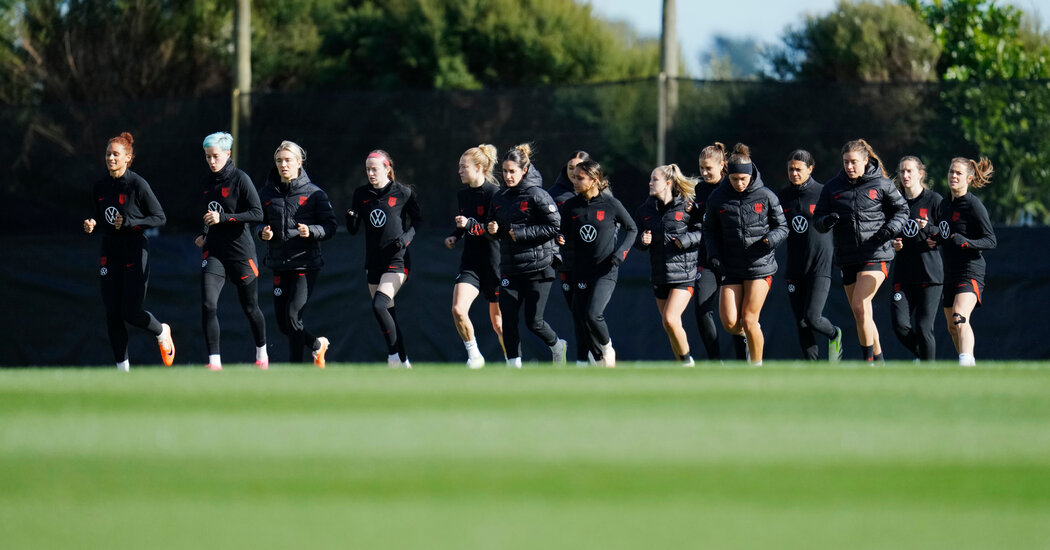
For 10 consecutive days, the soccer smorgasbord that is the Women’s World Cup unspooled at regular intervals, each match staggered to bestow it maximum importance, a full 90 minutes of splendor — plus an eon of stoppage time — on the global stage without intrusion from other games.
Even as upsets arose, a certain tidiness to the proceedings still reigned: On each of those days, there were multiple games one after another, all separated by a leisurely break. It was glorious, satisfying and, for those of us who crave order, rather life-affirming.
But since Sunday, and until Thursday, that structure will be set aside.
Starting with the final Group A games on Sunday, when Switzerland faced New Zealand just as Norway kicked off against the Philippines, each of the eight clusters is staging its final round of matches simultaneously.
On Tuesday, the United States will play Portugal in Group E at 3 a.m. Eastern, just as Vietnam kicks off the Netherlands. After a break, Group D will conclude with China playing England at 7 a.m., precisely when Haiti’s match against Denmark begins.
The change in schedule creates the closest conditions to competitive balance and fair play, assuring that teams do not know the result required to reach the knockout stage before they take the field. It discourages teams from improving their pathways in the bracket by influencing results with tactics like manipulating goal differential or not playing to win. It also inhibits match fixing, admittedly not a huge issue in the women’s game, but one with which FIFA, the World Cup’s organizer, is painfully familiar.
The policy of simultaneous games to end the group stage dates to a moment so embarrassing for international soccer — which has had one or two or nine — that it has a name: the Disgrace of Gijón. Or, in Germany, Nichtangriffspakt von Gijón (the nonaggression pact of Gijón).
At the 1982 World Cup in Spain, West Germany and Austria realized heading into their final match in group play that a victory for West Germany by one or two goals would enable both teams to progress — and thus eliminate the upstart Algeria, which, after finishing group play a day earlier, needed an Austria win or draw to move on.
So Germany and Austria appear to conspire to deliver a mutually beneficial result. In the 11th minute, Horst Hrubesch scored for West Germany. Then, the teams settled into torpidity and languor and boredom and yawn. For the rest of the match, George Vecsey wrote in The New York Times, “West Germany made more kicks backward than forward.” The arrangement secured both teams’ passage to the knockout rounds.
In his book about the rise of African soccer, “Feet of the Chameleon,” Ian Hawkey wrote that Algeria fans waved bank notes at the players, and that German television called it “the most shameful day in the history of our football federation.”
Algeria complained to FIFA, but no punishment would be, or really could be, levied. Instead, FIFA responded by amending its rules: Starting with the 1986 World Cup, all final matches in a group would be held concurrently. So, now they are.
Enjoy the mayhem. Embrace the absurdity. Reject the nichtangriffspakt.
